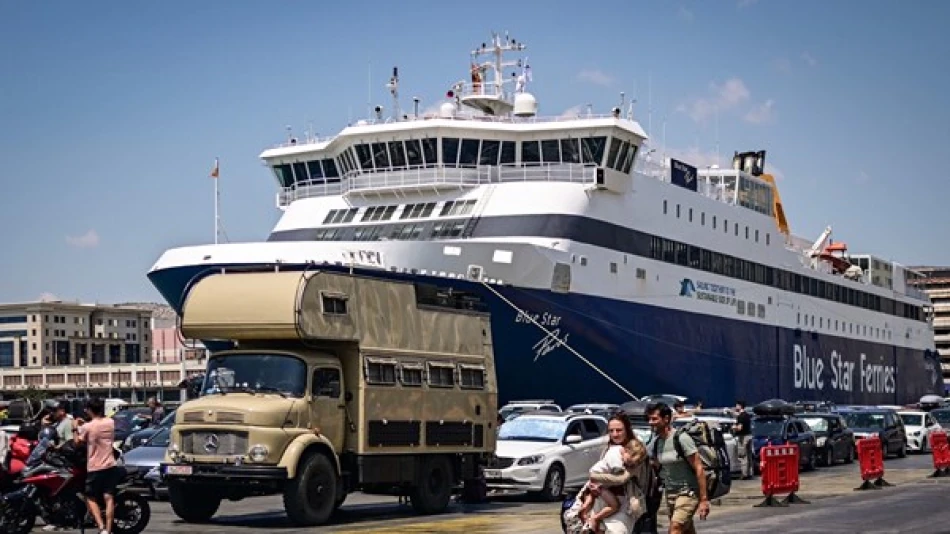
Deadly Wildfires Rage in Greece as Tourists Perish Amidst Fierce Winds
Deadly Storms Paralyze Greek Islands as Tourism Season Takes a Violent Turn
Two Vietnamese tourists died in Greece's Cyclades islands on Friday as hurricane-force winds reaching 88 kilometers per hour battered the country's tourism infrastructure, trapping tens of thousands of travelers and igniting dangerous wildfires near Athens. The tragedy underscores how extreme weather events are increasingly disrupting Europe's critical summer tourism season, with Greece's €20 billion industry facing mounting climate-related challenges.
Fatal Rescue Attempt Highlights Tourist Vulnerability
The deaths occurred on the popular island of Milos when a Vietnamese woman fell from a cruise ship into rough seas, and a male companion died attempting to rescue her. Coast Guard officials found both tourists unconscious in the water before transporting them to a local health center, where they were pronounced dead.
The incident reflects a broader safety concern for Greece's cruise industry, which has rebounded strongly post-pandemic but now faces new risks from increasingly volatile weather patterns. Cruise operators may need to reassess itineraries and safety protocols as Mediterranean storms become more unpredictable and intense.
Transportation Network Collapses Under Wind Assault
The powerful winds effectively shut down Greece's inter-island ferry system, stranding thousands of passengers in ports across the Aegean Sea. This transportation paralysis demonstrates the fragility of Greece's island-dependent tourism model, where ferry connections serve as lifelines for both visitors and local economies.
Unlike countries such as Spain or Italy, which can rely more heavily on land-based tourism infrastructure, Greece's scattered archipelago becomes particularly vulnerable when maritime transport fails. The disruption likely cost the tourism sector millions of euros in lost revenue and compensation claims.
Wildfire Crisis Intensifies Near Capital
More than 200 firefighters, supported by 11 water-dropping aircraft and seven helicopters, battled a major blaze in Keratea, southeast of Athens. The fire's seven-kilometer front threatened residential areas, forcing evacuations of several communities.
"It's a difficult fire because of the wind conditions," said Kostas Tsigas, head of the Greek Firefighters Association, highlighting how the same winds disrupting tourism were amplifying fire risks.
Climate Pattern Emerges
This latest crisis follows Greece's devastating 2023 wildfire season and reflects a troubling pattern across Mediterranean Europe. Countries like Spain, Italy, and Portugal have similarly struggled with the dual challenge of maintaining tourism appeal while managing increasing climate volatility.
Greece's geographic position makes it particularly susceptible to these compound disasters, where strong winds simultaneously disrupt transportation and accelerate fire spread. The timing during peak tourism season amplifies both economic and safety impacts.
Economic Implications for Recovery Strategy
Greece's tourism industry, which employs nearly one million people, has been banking on strong 2024 performance to fully recover from pandemic losses. However, these recurring extreme weather events may force a strategic rethink about seasonal concentration and infrastructure resilience.
The government may need to invest more heavily in weather-resistant transportation alternatives and enhanced emergency response capabilities. Some tourism analysts suggest Greece should diversify toward shoulder-season promotion to reduce vulnerability during the increasingly volatile summer months.
National meteorological services predicted wind conditions would ease after midnight Friday, offering hope for weekend recovery efforts. However, the broader question remains whether Greece's tourism model can adapt quickly enough to handle the new climate reality facing the Mediterranean region.
Most Viewed News

 Layla Al Mansoori
Layla Al Mansoori






